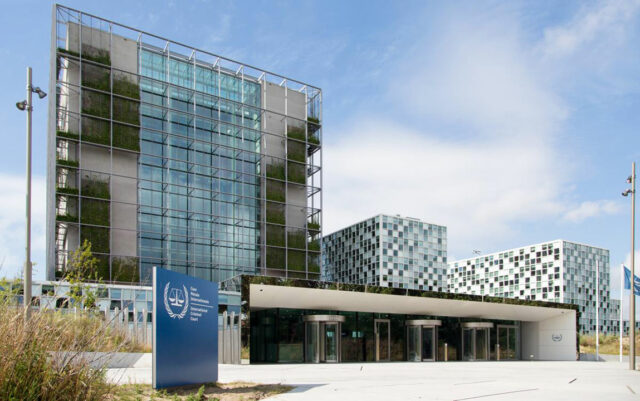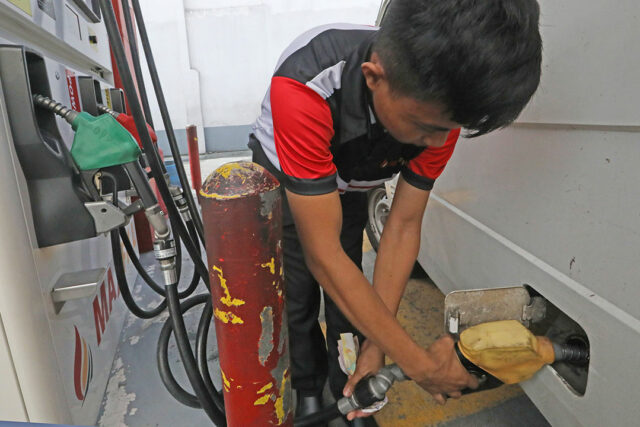By Sheldeen Joy Talavera, Reporter
THE DEPARTMENT of Energy (DoE) directed oil companies to increase the coco biodiesel blend starting October, in a bid to help reduce pump prices and support the local industry.
In a circular, the DoE said all diesel fuel sold in the country should contain a biodiesel blend of 3% starting Oct. 1, from 2% now.
Oil firms should increase the coco biodiesel blend to 4% by Oct. 1, 2025, and to 5% by Oct. 1, 2026.
The Biofuels Act of 2006 mandates that all liquid fuels for motors and engines contain locally sourced biofuel components.
Since February 2009, oil companies have been required to implement a 2% biodiesel blend by volume in all diesel fuel sold and distributed in the country.
“Following the drastic increase in the cost of fuel over the past years as a consequence of the Ukraine-Russia conflict, production cuts by the Organization of the Petroleum Exporting Countries (OPEC) Plus and global inflation, the National Biofuels Board (NBB) has determined that an increase in the bioethanol blend will reduce pump price of diesel and gasoline fuel and help alleviate the burden of rising prices on consumers,” according to the circular.
The increase in the coco methyl ester (CME) blend from 2% to 5% was supposed to have been implemented in 2020 but was delayed due to the coronavirus pandemic. At that time, there was a lack of assurance on the sufficiency of biodiesel supply, as well as logistical limitations.
Under the circular, the DoE said oil companies can also offer gasoline fuel containing 20% bioethanol blend on a voluntary basis. At present, the DoE has mandated a 10% bioethanol blend by volume into all gasoline fuel sold locally.
In a statement, the DoE said increasing the bioethanol blend to 20% could result in a P3.21 per liter reduction in gasoline pump prices.
“Implementing the higher biofuel blend is a win-win solution as we promote economic growth, uphold environmental stewardship and strive for cleaner energy utilization. It is also about investing in a future where sustainability drives progress,” Energy Secretary Raphael P.M. Lotilla said.
The DoE said in the circular that the downstream oil industry should implement measures to ensure that all requirements for the transition to the higher biofuel blend are in place before the deadline.
Oil firms should ensure there is sufficient storage capacity, blending facilities and transport systems to accommodate an expected increase in biofuel supply.
Fuel retailers that implement the 20% bioethanol blend are also directed to provide a dedicated storage tank and dispensing pump. Vehicle owners should be informed before dispensing gasoline.
Meanwhile, biofuel producers should ensure there is ample feedstock and production to meet the demand for higher biofuel blend.
“The proposed increase in the ethanol blend in gasoline and the CME blend in diesel is part of the country’s efforts to reduce reliance on imported fossil fuels, lower greenhouse gas emissions, and support the local bioethanol and biodiesel industries,” Rodela I. Romero, assistant director of the DoE Oil Industry Management Bureau, said in a Viber message.
She said the new policy is part of government efforts to comply with environmental regulations, promote the use of “cleaner fuels” and support local industries.
However, Terry L. Ridon, a public investment analyst and convenor of think tank InfraWatch PH, said the new policy “should have included a suspension mechanism in the event of unreasonable surges in global biodiesel and bioethanol prices.”
He said allowing a price surge would defeat the government’s objective to mandate biofuels to ensure lower pump prices.
“[The] government should focus on using local biofuel supply instead of relying heavily on importation for our blending requirements,” he said in a Viber message.
Dean A. Lao, Jr., president of Chemrez Technologies, Inc., said the higher biodiesel blend is “long-time coming and much needed” by the agriculture industry.
“There is so much local value adding to coconut oil and even more CO2 (carbon dioxide) displacement for the country. I am glad the biodiesel industry can be credited with such inclusive benefits for the Philippines,” he said.
Chemrez, a subsidiary of publicly listed D&L Industries, Inc., operates the country’s first continuous-process biodiesel plant, according to its website.
The United States Department of Agriculture (USDA) expects biofuel consumption to recover in 2024 as fuel ethanol demand is seen to grow by 8% to 682 million liters, while biodiesel demand is expected to inch up by 0.8% to 240 million liters.
“The primary driver of this growth will be increases in the fuel pool, with potential for greater growth if higher blending standards are fully adopted,” the USDA said in its report.












